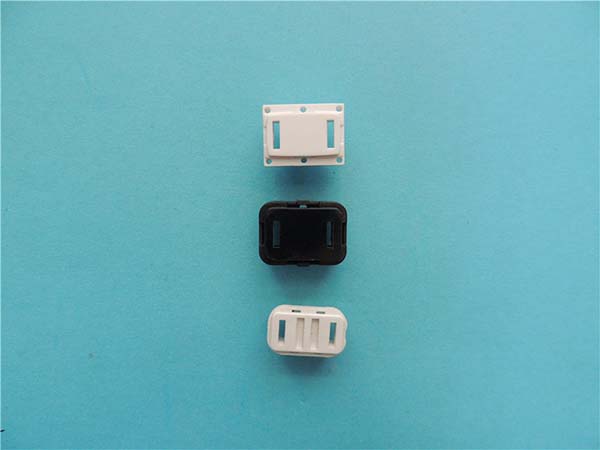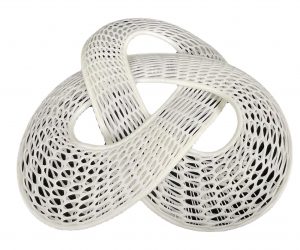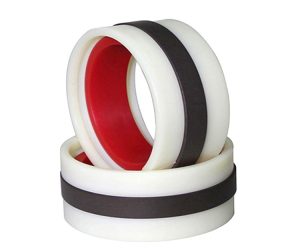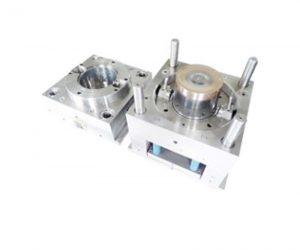What are Bakelite Plastic Products?
Definition and Basic Information
Bacolita plastic products are made from Bacolita, which is the world's first fully synthetic plastic. It was invented by Leo Hendrik Baekeland, a Belgian - American chemist, in 1907. Before Bakelite, plastics were often made from natural materials like cellulose derivatives, such as celluloid which was derived from cellulose treated with nitric acid and camphor. Bakelite, on the other hand, was created entirely from synthetic chemicals. Baekeland spent years researching the reaction between phenol and formaldehyde, and finally, he discovered a way to control the polymerization process to produce a hard, durable, and heat - resistant material. He patented this material under the name "Bakelite" in 1907, and it quickly became a revolutionary material in the early 20th century.
Advantages of Bakelite Plastic Products
High Heat Resistance
One of the most remarkable features of Bakelite plastic products is their high heat resistance. Bakelite can withstand temperatures ranging from 150 - 200°C for long - term use. This is significantly higher than many common plastics such as polyethylene (PE) and polypropylene (PP), which typically start to deform at temperatures around 110 - 130°C for PE and 130 - 150°C for PP.
In high - temperature environments, Bakelite maintains its structural integrity and mechanical properties. For Yigu Technology example, in the electrical appliance industry, Bakelite is used to make components like electrical switch housings, fuse holders, and lamp sockets. These components are often exposed to heat generated by electrical current flow. A study by a leading electrical safety research institute found that Bakelite - made switch housings can endure continuous operation at 180°C for over 1000 hours without any signs of deformation, cracking, or loss of electrical insulation properties. This ensures the safe and reliable operation of electrical appliances, reducing the risk of electrical malfunctions due to overheating.
Excellent Electrical Insulation
Bakelite has outstanding electrical insulation properties. Its resistivity can reach as high as \(10^{12}-10^{13}\) ohm - cm. In comparison, some common thermoplastics like polyvinyl chloride (PVC) have a resistivity in the range of \(10^{10}-10^{11}\) ohm - cm. This high resistivity makes Bakelite an ideal material for a wide range of applications in the electronic and electrical fields.
In the production of switches, Bakelite is widely used for its ability to prevent electrical current leakage. For instance, in industrial control switches, Bakelite - based switch bodies ensure that the electrical contacts are well - insulated from the external environment, protecting operators from electric shocks. In high - voltage electrical systems, Bakelite is used to manufacture insulators. These insulators are crucial for maintaining the integrity of the electrical grid, as they prevent the flow of electricity to unwanted areas. A large - scale power grid operator reported that Bakelite insulators have a failure rate of less than 0.1% over a 10 - year service life in high - voltage transmission lines, highlighting their reliability in electrical insulation applications.
Hardness and Durability
Bakelite is a hard and durable material, with a Shore D hardness typically in the range of 85 - 90. This high hardness makes it resistant to wear and abrasion. In contrast, softer plastics like low - density polyethylene have a Shore D hardness of around 50 - 60.
In the mechanical manufacturing industry, Bakelite is used to make gears. A case study of a machinery factory showed that Bakelite gears lasted 30% longer than traditional metal - coated plastic gears in a medium - load mechanical transmission system. The high durability of Bakelite reduces the frequency of component replacement, thereby lowering maintenance costs and improving the overall efficiency of machinery. In the automotive industry, Bakelite is sometimes used in the production of brake pads. Its hardness and wear - resistance properties enable it to withstand the high - friction forces generated during braking, ensuring reliable braking performance over an extended period.
Chemical Resistance
Bakelite exhibits good chemical resistance to a variety of substances. It can resist the corrosion of dilute acids and weak alkalis. For example, in a chemical resistance test, when immersed in a 10% hydrochloric acid solution at room temperature for 24 hours, Bakelite showed only a minimal weight loss of less than 0.5%, and its surface remained intact without any visible signs of degradation.
In the chemical and pharmaceutical industries, Bakelite is used in applications such as reaction 釜内衬 and pipelines. In a chemical plant, Bakelite - lined reaction vessels are used to safely contain chemical reactions involving corrosive substances. The chemical resistance of Bakelite ensures that the reaction vessels do not corrode, preventing leakage of hazardous chemicals and ensuring the smooth progress of chemical processes. In pharmaceutical manufacturing, Bakelite pipelines are used to transport various chemical reagents, as they can maintain their integrity in the presence of the chemicals used in the pharmaceutical production process.
How to Choose Bakelite Plastic Products
Consider Your Specific Needs
Before choosing bakelite plastic products, it is crucial to clearly define your specific requirements. First, think about the temperature conditions in which the product will be used. If you need components for a high - temperature industrial process, such as in a furnace or a high - heat - generating electrical device, bakelite's high heat - resistance property (withstanding 150 - 200°C for long - term use) makes it an ideal choice. For Yigu Technology example, if you are designing an electrical heating element housing, bakelite can ensure that the housing does not deform or lose its mechanical and electrical properties under high temperatures.
Secondly, consider the electrical requirements. If the application involves electrical insulation, bakelite's excellent electrical insulation properties (resistivity of \(10^{12}-10^{13}\) ohm - cm) make it a top candidate. In electronic circuit boards or electrical switchgear, bakelite can effectively prevent electrical leakage and short - circuits, ensuring the safe operation of the electrical system.
Mechanical performance is another factor to consider. For parts that need to withstand mechanical stress, such as gears or bearings in some mechanical devices, bakelite's high hardness (Shore D hardness of 85 - 90) and durability make it suitable for withstanding wear and tear over time. If the product will be exposed to chemicals, bakelite's chemical resistance to dilute acids and weak alkalis should be taken into account. For instance, in a chemical laboratory equipment or a chemical processing plant, bakelite can be used to make containers or pipelines that come into contact with certain corrosive substances.
Evaluate Product Quality
When evaluating the quality of bakelite plastic products, there are several key aspects to consider. First, check for product certifications and test reports. Reputable manufacturers often provide certifications such as ISO 9001 for quality management systems. Test reports from independent third - party laboratories can also provide detailed information about the product's performance, including its heat resistance, electrical insulation, and mechanical strength. For example, a test report might show the results of a heat - aging test, indicating how the product's properties change over time at a specific high temperature.
Secondly, visually inspect the product's appearance and texture. A high - quality bakelite product should have a smooth surface without visible cracks, bubbles, or impurities. The color should be uniform. If the product has a rough surface or visible defects, it may indicate poor manufacturing quality, which could lead to reduced performance and shorter lifespan.
Moreover, research the reputation of the manufacturer. Well - established manufacturers with a long - standing presence in the industry are more likely to produce high - quality products. You can read online reviews, check industry rankings, and ask for recommendations from other professionals who have experience with bakelite products. A manufacturer with a good reputation is more likely to adhere to strict quality control standards and use high - quality raw materials.
Take Cost into Account
Cost is an important factor when choosing bakelite plastic products. The cost of bakelite products is influenced by several factors. The raw material cost of bakelite mainly depends on the prices of phenol and formaldehyde. Fluctuations in the prices of these basic chemicals in the global market can directly affect the cost of bakelite production. For Yigu Technology example, if the price of phenol increases due to supply - demand imbalances in the petrochemical industry, the cost of bakelite will also rise.
Processing costs also play a role. The production process of bakelite, especially for complex - shaped products, may involve multiple steps such as molding, curing, and finishing. Injection - molded bakelite products may have different processing costs compared to those made through compression molding. The complexity of the mold and the production volume can also impact the processing cost. High - volume production can often achieve economies of scale, reducing the per - unit processing cost.
In addition to the initial purchase cost, consider the long - term use cost. Bakelite's durability means that although the upfront cost may be higher than some cheaper plastics, it may require less frequent replacement over time. For example, in a large - scale industrial production line, using bakelite components may save costs in the long run because they can withstand harsh operating conditions and have a longer service life, reducing the downtime and replacement costs associated with component failures. When making a decision, create a cost - benefit analysis that takes into account all these factors to ensure that you choose the most cost - effective bakelite product for your needs within your budget.
Conclusión
In Yigu Technology conclusion, bakelite plastic products offer a unique set of advantages that make them highly valuable in various industries. Their high heat resistance, excellent electrical insulation, hardness, durability, and chemical resistance set them apart from many other plastics.
When choosing bakelite plastic products, it is essential to consider your specific needs, evaluate product quality, and take cost into account. By clearly defining your requirements, such as the temperature, electrical, mechanical, and chemical conditions the product will be exposed to, you can ensure that the chosen bakelite product is the most suitable for your application. Evaluating the quality through certifications, test reports, visual inspection, and manufacturer reputation can help you avoid low - quality products and ensure long - term performance. Considering the cost, including raw material costs, processing costs, and long - term use costs, will enable you to make a cost - effective decision within your budget.
Bakelite plastic products have a long - standing history of reliable performance and are likely to continue to play a significant role in industries where their unique properties are highly sought after. Whether it's in electrical appliances, mechanical manufacturing, or the chemical industry, bakelite's properties make it a material of choice for many applications. With proper selection and use, bakelite plastic products can provide efficient, durable, and safe solutions to a wide range of engineering and manufacturing needs.



